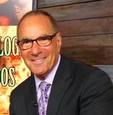“Dr. Mantell, it seems that ‘being authentic’ is the hottest topic in self-improvement. Is that true?” If 119,000,000 hits on Google means something is hot, then yes, authenticity - in our age of inauthenticity - is hot.
Just what does being authentic mean? Where does this originate? Descartes suggested that authenticity meant following a moral inner voice, anchored in thinking and acting responsibly. Other philosophers, of course, suggest other, more external, sources of authenticity.
Regardless, those who are original, genuine, real, honest, likeable, and the “real deal,” are considered to be authentic. What is so special about these folks? What traits do they have that makes them so authentic?
There are five: these people simply 1) do not fake their emotions, 2) are well anchored in high self-esteem, are 3) therefore comfortable being vulnerable, 4) have accurate self-awareness, and 5) therefore do not look for validation from others.
Because of these traits, they are 1) comfortable sharing their thoughts and feelings unapologetically, are 2) able to offer others honest compliments, are 3) free of judgment, 4) can truly listen to the needs and opinions of others, and 5) have no need to please others. They are above all, driven by their own inner compass, and not surrounding voices. That’s what high self-esteem, being courageous to make your own decisions, will do for you. Allow you to be you. The real you. Without a mask.
So what makes it so difficult for so many to be authentic? According to a 2002 study conducted by the University of Massachusetts, 60% of adults can’t have a ten minute conversation without lying at least once http://www.eurekalert.org/pub_releases/2002-06/uoma-urf061002.php. I believe the answer lies in my, by now, famous observation, “The link is what you think—it’s ALL in your head.”
The first of 12 irrational ideas posited by Albert Ellis, Ph.D., “The idea that it is a dire necessity for an adult human being to be loved or approved by virtually every significant other person in his community” may well explain, I believe, why so many find authenticity to be so difficult. For the many business leaders I've coached and provided power mentoring, this single believe has been the main hurdle for them to overcome.
Look around and see how many, maybe even you, have a fear of not being like, of not being accepted, of not being approved. These folks, perhaps you, have a deep seated belief that the opinions of others are far more important than one’s own, unlike authentic folks who, as I noted above, are driven by their own inner compass, and not surrounding voices.
Dispute this idea of it being a “MUST” or a “SHOULD” to be loved and approved of by everyone—it’s the ultimate cognitive obstacle to your authenticity. How do you dispute it? Let’s look at what Ellis says:
“It’s impossible to be liked or loved by everybody. No matter how popular you are, there will always be someone who doesn’t like you.
And worse, even if you could get everybody to like or love you, you would never know if they liked you enough, or if they still liked you.
If you try too hard to be loved or approved, people will soon tire of your constant sycophancy, and they will not respect you. If you demand others’ approval, you’ll always be doing what they want you to do, instead of doing what you want to do with your time and your life. Your life will no longer be your own.”
Ellis suggests reminding ourselves more accurately, “It’s not pleasant when other people don’t like you, but it’s not awful, it’s not the end of the world, and it’s not fatal.”
The advantages of being real, comfortable showing the world your authentic self, free of your inner and fearful critic, leave you more engaging, more in harmony with others around you, freer and genuinely happier. Isn’t that ultimately what you want? Greater inner peace and happiness seem like a wonderful tradeoff to the erroneous belief that you must or should be approved of by others.
Michael R. Mantell earned his Ph.D. at the University of Pennsylvania and his M.S. at Hahnemann Medical College, where he wrote his thesis on the psychological aspects of obesity. His career includes serving as the Chief Psychologist for Children’s Hospital in San Diego, and as the founding Chief Psychologist for the San Diego Police Department. He also served on the faculty of UCSD’s School of Medicine, Dept. of Psychiatry.
He is currently a highly sought after transformational behavior coach and accomplishment mentor for professional and elite amateur athletes, senior executive business leaders, and trains the nation’s top leaders in fitness in transformational leadership. He has worked in the media for nearly 40 years, appearing on every major talk and news show, and has been interviewed in, and written for, every major health and fitness magazine.
Michael is a member of the Scientific Advisory Board of the International Council on Active Aging, the Chief Consultant for Behavior Science for the Premier Fitness Camp at Omni La Costa, and served as the Senior Consultant for Behavioral Sciences for the American Council on Exercise.
Michael is an Organizational Advisor to Fitwall, Rock My Run, amSTATZ, Outburst Mobile, and speaks regularly for Rancho La Puerta and the Asia Fitness Conference in Bangkok, in addition to numerous other fitness-health organizations throughout the nation. He has been a keynote speaker for the University of California’s system wide “FitCon” and for UCLA’s “Stress Less Week” as well as for the Transformational Leadership Council.
He is a best-selling author of three books including the 25th Anniversary updated edition of his 1988 original “Don’t Sweat the Small Stuff, P.S. It’s All Small Stuff,” and his 1996, “Ticking Bombs: Defusing Violence in the Workplace.” He is listed in greatist.com’s 2013 “The 100 Most Influential People in Health and Fitness.” His fourth book is due out soon.

Post new comment
Please Register or Login to post new comment.